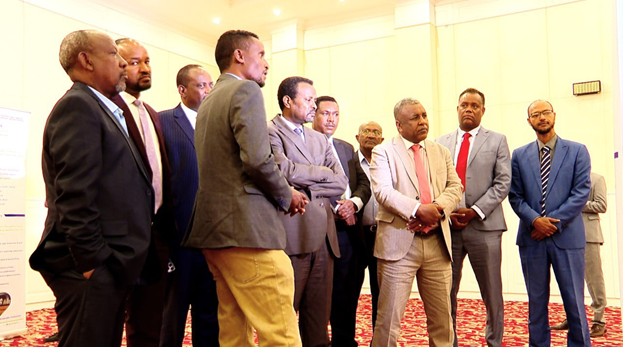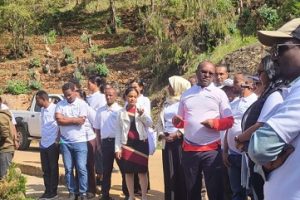
•EAA secures lab accreditation to boost exports
•66 agricultural services fully digitalized
ADDIS ABABA – As part of Ethiopia’s push to integrate into the global trading system, the Ethiopian Agricultural Authority (EAA) has launched a key laboratory accreditation initiative.
The initiative is aimed at enhancing the quality and safety of animal products and agricultural inputs—crucial steps toward World Trade Organization (WTO) membership and improved competitiveness in the African Continental Free Trade Area (AfCFTA).
In a ceremony held yesterday, the EAA, in partnership with the Ministry of Agriculture (MoA) and the Ethiopian Accreditation Service (EAS), officially inaugurated the Animal Products and Inputs Quality Testing Laboratory Accreditation and received the corresponding certification.
EAA Director General Ambassador Deriba Kuma emphasized that fulfilling stringent international standards on agricultural product quality and safety is a central requirement for WTO accession.
“This accreditation marks a significant milestone in aligning our agricultural system with global benchmarks,” he said.
Responding to past quality and safety concerns from importing countries, the EAA has taken proactive steps to build trust and enhance export competitiveness. The newly accredited laboratory is expected to play a pivotal role in safeguarding product standards across the value chain.
The EAA has established a comprehensive infrastructure comprising nine technical departments, four centers, 45 field stations, and three laboratories to oversee and enforce standards. According to Deriba, these efforts also support the nation’s broader ambition to maximize benefits from AfCFTA by ensuring that Ethiopian products meet continental and global requirements.
As part of its modernization drive, the EAA has digitalized 66 of its core services since last year, enabling stakeholders to access services remotely and more efficiently.
Agriculture Minister Grima Amante (PhD) noted that despite Ethiopia’s substantial livestock resources, the country continues to import animal products and inputs—an issue that must be addressed through a systemic transformation of the sector. “It’s not enough to produce; we must ensure quality, enhance infrastructure, and build competitive export capacity,” he stressed.
Highlighting successes in wheat production and the Green Legacy Initiative, Grima called for similar breakthroughs in the animal sector. “This accreditation not only enhances our capacity but also positions Ethiopia to take full advantage of emerging digital agriculture tools and continental trade opportunities,” he added.
BY TSEGAYE TILAHUN
THE ETHIOPIAN HERALD SATURDAY 26 APRIL 2025





